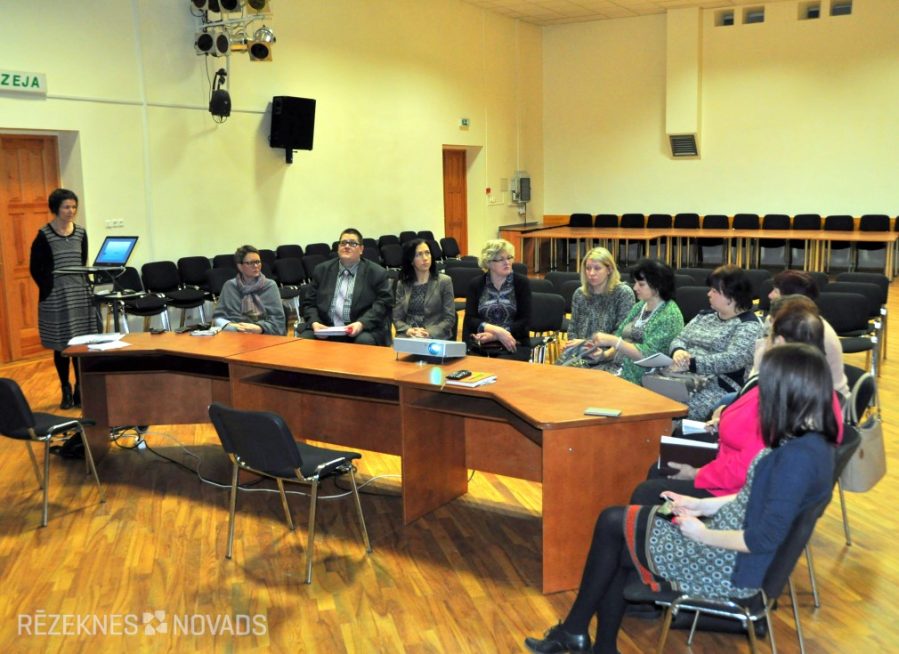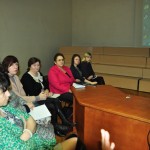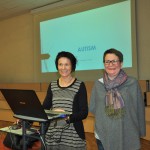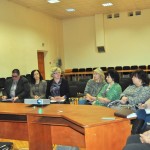Children with autism - We can help together

Every baby in the world comes with the need for love and care, but there are children who need not only parents but also the attention and care of the whole society. These are children with physical or mental disabilities that require enormous efforts and work in their development, including children who are diagnosed with diagnosis – autism, which is currently found in 3-5 children in the world from 10,000.
Autism from Latin means: conclusion, isolation, children have difficulties in communicating and understanding the people surrounding them, these symptoms are observed at the age of infant and early childhood. The diagnosis of older doctors is desperate, but the attitude of the surrounding society and public institutions to these children is largely indifferent or even negative. There is no separate programme for children with autism in Latvia in special education, teachers often lack experience and awareness of how to work with these children. In order to discuss the problems of special children in schools, the parents and teachers of the Rezekne municipality met special educational teachers from the Arendal district in Norway. Liv Rostole and Anna Elizabeth carried. They visited Maltas at the special boarding school, listened to the parents of children with autism, and also participated in the discussion with the teachers of Rezekne's municipality.
As Liv Rostole was informed in his presentation, whose center of resources in Arendal works with children with special needs, autism is an organic brain damage, the cause of which has not yet been established. The signs of autism may be observed until the age of 3 years. Functional disorders may occur in the social communication of the child, the development of the language, the toy, etc. Parents observe the indifference of a child, dislike when parents want to take a child in their lap, shake, embrace, press them, patch them. Children do not make eye contact, do not use the expression that matches the situation of emotional proximity, do not smile, do not respond to the voice of the relatives, do not look at the sound direction of the language. Consequently, the children of emotional belonging and patics are shown only in a typical manner, without joy reaction, expression, mystery and body movements. An important feature of autism spectrum is also the lack of empathy and the difficulty of identifying themselves with a second person. If they start working with these children in time, they are able to socialize, successfully integrate into the learning process and the peers. The Norwegian specialists also showed some video stories that reveal how children with autism successfully feel in the environment are able to learn the various skills they have made impossible.
Ilona Bruskovska and Nathalie Melne have accumulated the experience with children in the work with children, but they are already congested with children with special needs. In order to help their children, the parents have established an Autism Support Society, the first year in Rezekne, the first classroom in Latgale for children with autism and other rare diagnoses. Every summer children also participate in day-night camps in the rehabilitation centre '' Razna '', but this is insufficient.
In Norway, resource centres are established, where children are working together with children, social workers and teachers, each child being developed his development programme. Rezekne is a day centre for children with special needs, but there is also a need for a support centre in Rezekne municipality to train specialists, parents for children with children. Such a centre could be built on a Maltas special school base. According to Rēzekne District Development and Planning Department external communications specialist Inta Rimšāne, any possibility of attracting project funding in cooperation with the Norwegian side should be exploited, but in this area it is necessary to look forward to public support and the interest of Members of local government.
While gathering impressions during the visit to Rezekne's municipality, the Norwegian guests acknowledged that it is not easy for parents who have children and teachers as well as teachers because they lack the necessary teaching tools and information. “The kids need special attention.” We were just in one school and seeing some children and how teachers worked with them. However, both parents, children and teachers should start using methods that are already universally recognised throughout the world and also in Norway. It became easier for us to work with such children after we started using these methods, ”says Liv Rostole.
Inese Muhamberga, head of the non-governmental organisation “angels with us”, asks what to do for these children when they reach the age of majority. “We invest large resources in the integration of these children, training up to 18-19 years of age, but these children then go to the old people's homes and the resources invested in their training are discarded. 'Of course, that young man can't live alone, he can't compete in the labour market, his parents worry – what happens when we're no longer next.' In Norway, it is believed that it is a municipal function -- to take care of such people and to provide them with the necessary care. For young people, day centres are set up, with both those who are unable to work and those who can do some simple work and thus earn their livelihoods, such as something simple with hands and sell, others work in the garden, they have the opportunity to learn something, learn more, etc. Of course, the proportion of their accommodation costs is covered by social insurance and self-government.
“There are many different things that can be changed. And it's very important to start with yourself because it's very important for your attitude towards a child with autism," says a special education teacher from Arendal Liv Rostole.
Anna Rancāne


